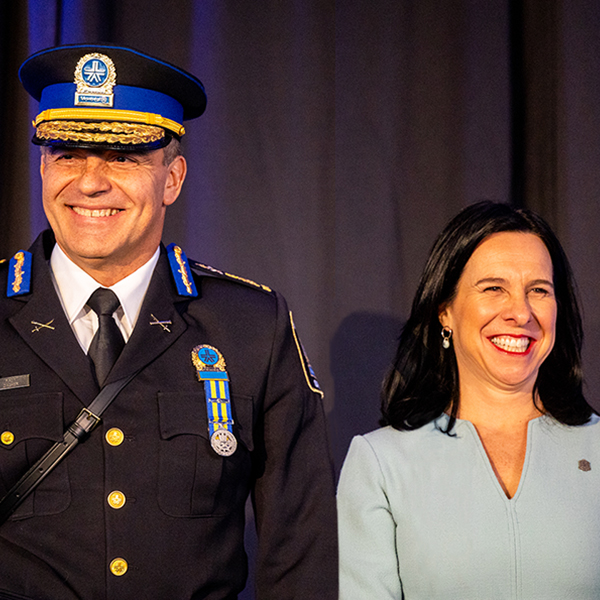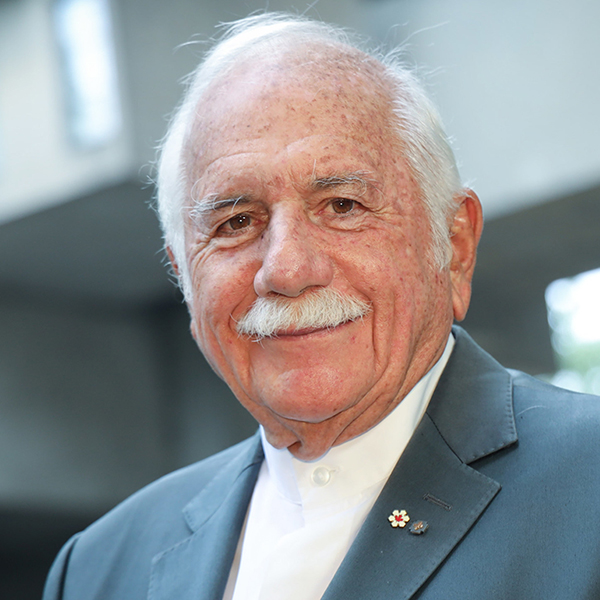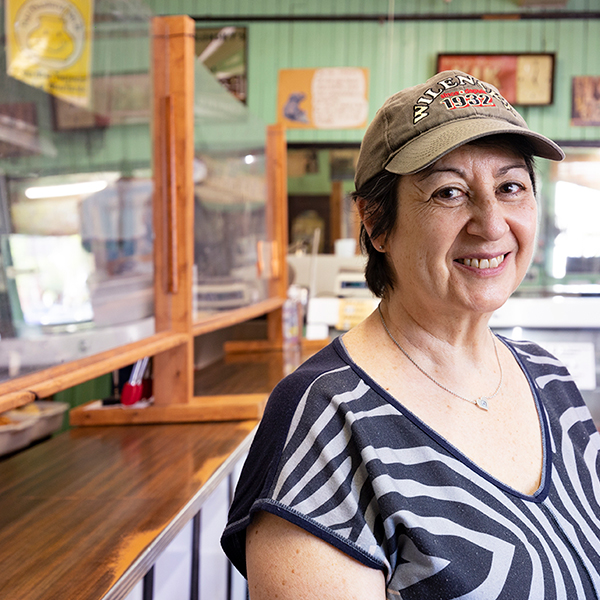Nancy Shoiry, MArch’92, heads up a City of Montreal agency that you probably aren’t familiar with – but it’s one that plays a vital role in everything from the availability of affordable housing in the city to the construction of major new developments like Îlot Balmoral at the Quartier des spectacles, the future headquarters for the National Film Board of Canada.
“My passion is related to the social impact of my work,” says Shoiry, the executive director of the Société d’habitation et de développement de Montréal (SHDM).
The SHDM rents out 4,700 affordable apartments on the island, including rooming houses and units for families and seniors. It also offers programs and incentives to help Montrealers purchase condos.
“We have a diversified portfolio of commercial, institutional, cultural, and housing assets, and although we’re a nonprofit, our commercial buildings produce income that allows us to invest in more social venues,” explains Shoiry.
In March, Shoiry returned to her alma mater to speak at the School of Urban Planning’s Gewurz Lecture Series about the challenges involved in developing affordable housing, such as rising land and construction costs. She remembers her reaction when she first heard about the launch of a new affordable housing program at McGill decades ago.
“It was exactly what I’d been looking for,” recalls Shoiry, who took a sabbatical from her job at Habitation Communautaire Centre-Sud, a nonprofit social housing organization, to study with Avi Friedman, MArch’83, and Witold Rybczynski, BArch’66, MArch’72, DSc’02.
“We were encouraged to constantly think outside the box, and my thesis professor, Pieter Sijpkes, was a true inspiration,” says Shoiry.
Over the next 10 years, Shoiry blazed a trail through many key jobs for the city that increased her expertise in housing and urban project management. She joined the research department in the city’s housing unit for five years before working as an architect for the heritage department. Then, a short gig managing the permit department further honed her leadership skills, and once the city’s boroughs were created, she ran the urban planning division. Shoiry became director of urban planning for downtown Montreal in 2008.
“The City of Montreal is a great employer for learning all kinds of jobs. I’ve learned that I’m there to influence, but I’m not the decision-maker. [In] planning departments, we’re protecting the development of the city, but we’re not guardians of the city.”
After a one-year stint as a vice-president for the Société du Vieux-Port de Montréal in 2011, Shoiry returned to the City of Montreal as director of land development, overseeing 250 employees.
“I was responsible for the master plan for the entire city, including the housing department where I’d started my career,” explains Shoiry. “All my experiences were a build-up to this moment: My office was on the sixth floor, but I’d worked on every floor in a different job.” She took on her current role at the SHDM in 2015.
About five years ago, the SHDM’s governance shifted towards developing what the private sector wasn’t necessarily interested in pursuing. Shoiry is excited about SHDM’s latest project announced in April in partnership with the Société de transport de Montréal (STM): The Frontenac real estate complex will feature 298 newly-constructed apartments, including 60 social housing units and 109 affordable units.
The complex, which will also include 25,700 square feet of STM office space, will be built on land owned by the STM, located near the Frontenac metro station.
“This is our future; we believe public land should stay in the public realm,” says Shoiry. “Responsible property investment is something that we’re defending very strongly now because of the lack of land. The city once had an approach of selling properties at market value, so this is one of our solutions.”
Recently, Shoiry re-read her McGill thesis on residential housing and was surprised to discover it is still relevant today.
“We still face the same challenges that I had when I started working in 1987,” says Shoiry. “We have a great, walkable city in Montreal, where we can live, work and play downtown, and I think the vision of the new administration and the new generation is going to continue contributing to that.
“We have to change the paradigm of the perspective that private investment is bad,” says Shoiry. “We need money to develop the city, but we need to think about the social impact of these investments. We need an integrated approach.”
For example, Shoiry cites a small project the SHDM is launching, Maison du Père, which will house older, chronically ill men. The agency is transforming an existing property in partnership with a broad assortment of community groups and is seeking philanthropic support for the project.
“We’re trying to build a network – an ecosystem – and mobilize the private philanthropic community capital to expand the pool of investment,” explains Shoiry.
While Montreal is attracting increasing numbers of highly skilled workers in the tech industries, the city isn’t yet facing the same kind of affordability crunch for housing that afflicts Toronto and Vancouver. That doesn’t mean there isn’t work to be done.
“Public investment alone will not solve the affordability crisis, and the private sector will not provide affordable units if they’re not obligated to. Luckily, we have an administration with a very strong political will for affordable and social housing, and we’re currently discussing how we can contribute to its objective of adding 12,000 new units within four years,” says Shoiry.


